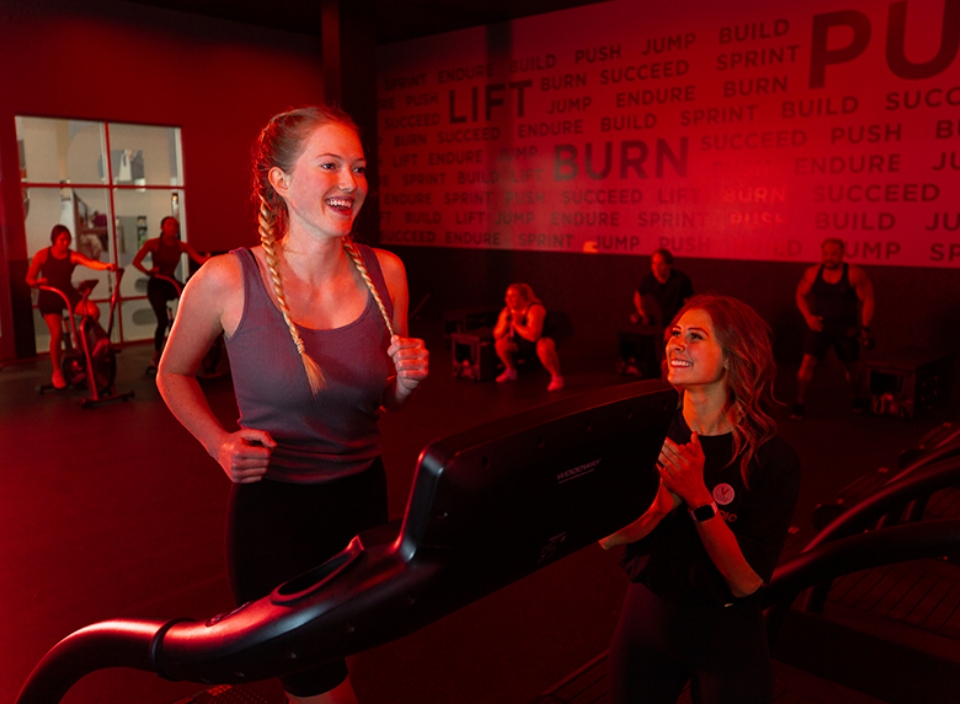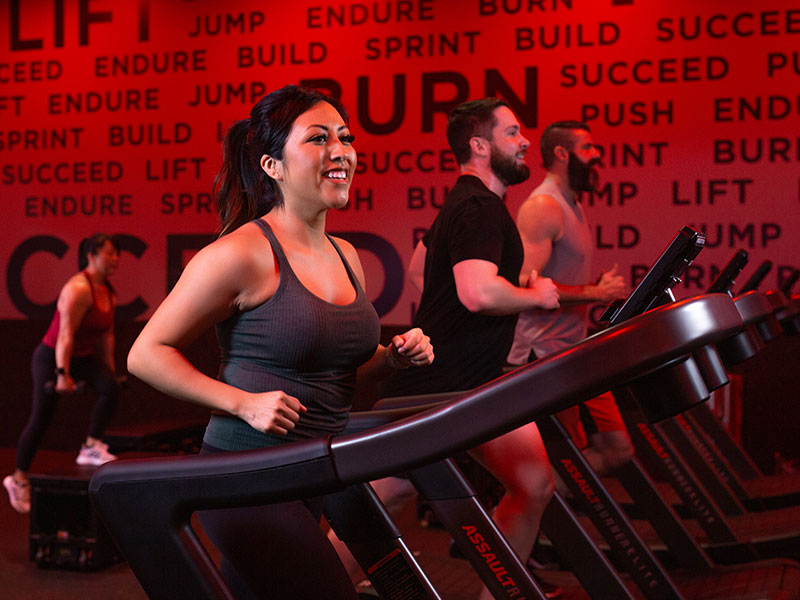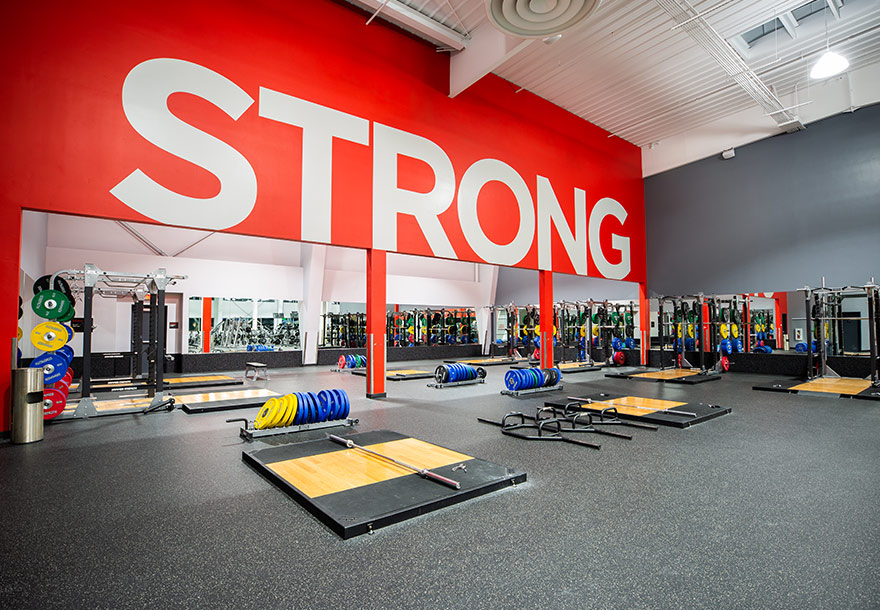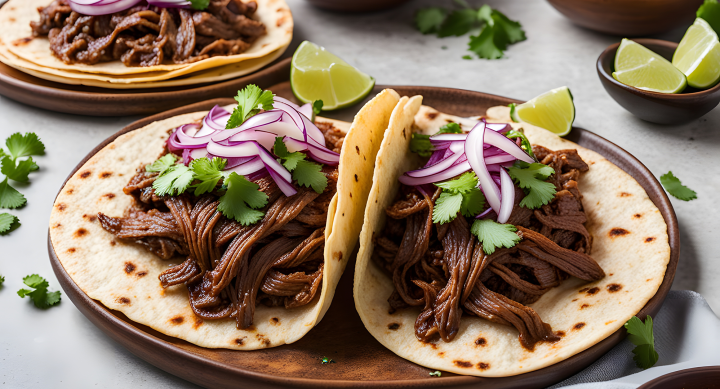Nutrition can be a controversial topic in the fitness industry. Fad diets come and go, but there are two key factors to consider when thinking about overall health, weight, and nutrition: our bodies require protein to complete various functions, and more calories in versus out will result in weight gain.
The following information provides a general overview of why and how protein should be added to a balanced diet consisting of whole and minimally processed foods (alongside plenty of water to stay hydrated). For more personalized recommendations, consult a Registered Dietician, especially if you have underlying conditions like Diabetes, Heart Disease, or kidney disfunction.
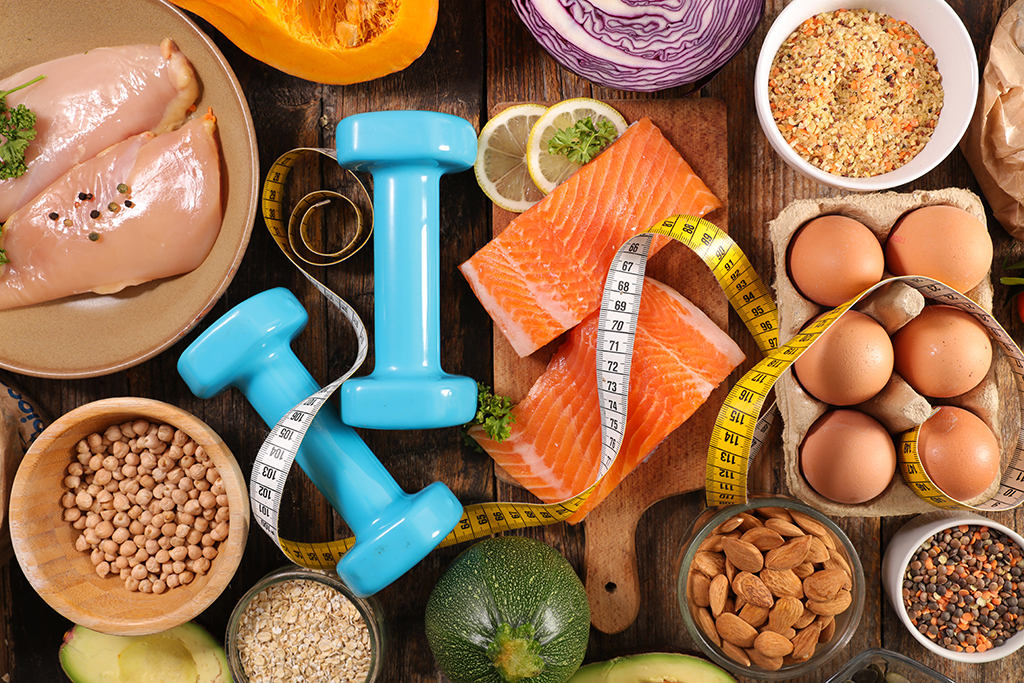
Why is protein important?
Proteins are made up of various combinations of amino acids, the building blocks of various body parts including skin, muscle, hair, nails, blood, and internal organs. At a larger level, protein is one of three macronutrients (alongside fats and carbohydrates), and a key component to eating a balanced diet of healthy calories. Protein is key component for proper recovery and helps us feel full longer than any other type of calorie. Exercise, especially strength training, breaks down muscles via tiny tears in the tissue. Protein helps rebuild those tears, which is why muscles grow back stronger after a series of workouts with adequate rest, recovery, and nutrition.
How much protein do I need to eat?
Protein needs will vary per individual, with athletes requiring the most due to the demands of their sport, but in general, you can use your bodyweight to determine the range of protein you need to consume every day. To do this, convert your weight into kilograms: Take your total weight and divide it by 2.2 (e.g. 200lbs / 2.2 = 90.9kg). Then, use the chart below as a guideline for how much protein you need.
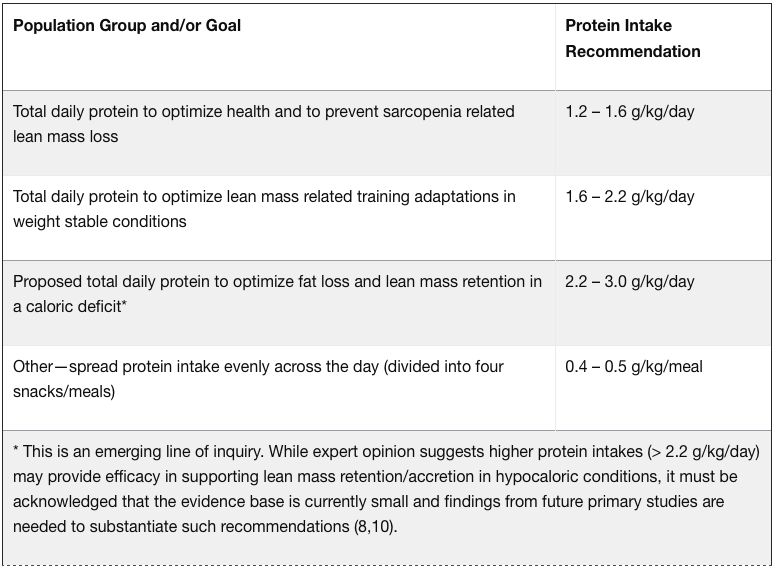
Those who want to be healthy, maintain a steady weight, and avoid muscle loss due to aging (sarcopenia) should focus on getting 1.2 g to 1.6 g of protein per kg of body weight.
- Range for a 200 lb/91 kg man: 109-145g of protein daily
- Range for a 150 lb/55 kg woman: 66-88 g of protein daily
For those who want to gain lean mass (muscle), stay healthy, and make small, safe changes to their body composition, focus on getting 1.6 g to 2.2 g of protein per kg of body weight. The range can be lowered to 1 g of protein per kg if calories are being restricted from the other macronutrients. Individuals in this group are more likely to be active throughout the day, meaning total calories should also increase to ensure muscle breakdown doesn’t surpass muscle repair.
- Range for a 200 lb/91 kg man: 145-200 g of protein daily
- Range for a 150 lb/55 kg woman: 88-121g of protein daily
A good rule of thumb is to consume 20-30 grams of protein with each meal, and possibly an additional snack, to make sure you’re eating enough protein throughout the day.
Sources of Protein
Protein-rich foods help your body recover, provide fuel to keep moving, and help you feel more satisfied after eating. Animal products like meat, eggs, and dairy are easily accessible. Here are some of my favorite options:
- Lean Meats: Whether you’re working out like an athlete or are a regular gym goer, lean cuts of meat provide the highest amount of protein per gram than most other sources. Chicken breast, turkey, and fish tend to be the leanest (least amount of fat, most amount of protein). Red meat cuts like sirloin, top round, and tenderloin are the leanest in this category. Fattier cuts of meat, fish, and chicken can make staying within a specific caloric range challenging.
- Eggs: A breakfast staple, eggs are a relatively lean, very versatile, and inexpensive source of protein. They also include many important micronutrients like Vitamin D and iron.
- Dairy: Cottage cheese and Greek yogurt are great options (if you don’t have a dairy intolerance) because they both contain significant amounts of protein. Two types of protein are Included in dairy products: whey and casein. Whey is quickly digested and best consumed immediately after a workout. Casein gets digested more slowly, which helps if you need to stay fueled for longer periods of time, like between meals and overnight.
- Plant-Based: Quinoa, Soy, Nuts, Lentils, Tofu, and Tempeh are all sources of protein that come directly from the earth. While they are higher in carbohydrates, these are great options for vegetarians and vegans to ensure they still get some of the essential amino acids (EAA) found in meat-based proteins. Soy is one of the few plant-based proteins that contains all EAAs.
- Supplemental Protein: Usually sold in bulk quantities, protein supplements are meant to help you cross the finish line of protein intake if you can get enough into your diet from whole food sources. Whey protein powders are the most popular and can be found at your local grocery or supplement shop. Not sure where to start? Check out this list of our favorites! Protein powders can be mixed with water, milk, or blended in a smoothie to be enjoyed during the day as a meal, snack, or post-workout recovery tool.

Balance Activity and Nutrition
Overall caloric balance is key to maintaining weight, losing fat, and/or gaining muscle. Eating too much and moving too little is as much of a health concern as eating too little and moving too much. When determining your protein needs, make sure to use one of the guidelines above for grams of protein per kilogram of bodyweight and fill in the rest of your calories using carbohydrates and fats. The InBody scale at your local VASA can show you what your BMR (Basal Metabolic Rate) is, which is how much energy (calories) your body burns if you were to just lie awake for an entire day. Adding in additional calories to support your workout goals will give you an idea of how much you need to consume daily to ensure muscles and other tissues have enough fuel to repair themselves. Dipping below your BMR for total calories can have a detrimental effect on your body’s ability to function, energy, and mood. Eating enough is essential to performing well in the gym and in your day-to-day life.
Nutrition can be a scary part of making sure your performance in the gym continues to improve. Understanding the role protein plays in strength training workouts and recovery from resistance training and cardio workouts, will help you make better decisions when thinking about properly fueling your body.
RECOMMENDED
SUBSCRIBE TO OUR BLOG
Enter your email to start receiving our blog emails!
